Why
The goal of this project is for historians and archivists working at the Leo Baeck Institute to partner with classroom teachers to co-create lesson plans that incorporate the institute’s rich collections on the history and culture of German-speaking Jews. The idea is to not only get these interesting primary source materials out into classrooms, but also to build the capacity of LBI staff, honing their skills as collaborators with teachers. The project will yield several completed lesson plans to share online for educators anywhere to freely use in their classrooms.
Location
Leo Baeck Institute, New York, West 16th Street, New York, NY, USA/-73.9937463,40.73801699999999,4/1000x300.png)
Characteristics
Area
The team worked in-person at the LBI offices in Manhattan, which is also where they hosted the teacher professional development workshops. The Leo Baeck Institute is one of five partner institutions housed at the Center for Jewish History which serves as a public exhibition and programming space as well as a research and archival facility. The archival materials used in this project and the lesson plans created will all be available on the 1938Projekt website.
Audience
LBI Staff: Capacity building for working with middle school and high school educators and their students
Middle School and High School Educators: Learn more about the digital collections LBI has to offer and get some inspiration for using them in class
Middle School and High School Students: Learn History, Civics, Social Studies and Language Arts through the use of primary source materials
How the audience/participants were reached or discovered
Project consultant, Rebecca Krucoff, collaborates with teachers across New York City through her work as a provider of professional development for K-12 educators. The eight teachers recruited for the professional development sessions were all individuals Rebecca had worked with previously.
How it was done
How
The methods used in this project are…
Archiving
The Leo Baeck Institute has archived their extensive collections documenting the material and intellectual culture of German-speaking Jews that was nearly lost in the Holocaust. In 2018, a team led by curator, Magda Wrobel, created the 1938Projekt, a year-long daily online publication through social media posts, eighty years after the dramatic events of 1938 in Germany and Austria. Each post offers readers a glimpse into the lived experiences of someone living eighty years ago that day. At the end of the year, all of the posts were live in the 1938 Projekt website where users can now go to explore the entries by date, subject or contributor.
Reading the daily entries of the 1938Projekt is an opportunity to understand events and decisions of people from the past who can feel a little unreal to a young student because of their separation by time, place and circumstance. By seeing events unfold day by day and by connecting larger events to the specific experiences of individuals, we come as close as possible to the time travel of historical understanding. The team working on these classroom materials wanted to help students connect with this history in a personal way, connecting on a human level with the people whose records survive in the archives.
Workshops
Classroom teachers who participate in professional development workshops at LBI had the opportunity to learn from LBI Historian and Curator, Magda Wrobel and Collections Director, Renate Evers. A goal of this project is developing the lectures they offer to the teachers interested in using LBI’s collections in their classrooms.
Writing
Consultants Rebecca Krucoff and Natalie Milbrodt created sample lesson plans featuring LBI digital archival materials. These lesson plans will inform a Microsoft Word template created by graphic designer, Carl Petrosyan, that other teachers can use to create lesson plans for LBI with the same look and feel as the website. After two workshops at LBI, eight middle school and high school teachers from around New York City created their own lesson plans using material from the 1938Projekt website.
Results
The results of this project were primarily capacity building for LBI historians and archivists who gained insight and skills that will help them to continue partnering with K-12 educators in the future. Staff gained pedagogical strategies and lesson plan development skills. This project also resulted in published lesson plans: 3 plans created by the consultants and LBI staff and a number of lesson plans created by local middle school and high school Social Studies and English Language Arts teachers.
How it went
Main lessons learned
A key takeaway was that navigating through multiple layers of a curated digital archives site, into online finding aids and then to individual artifacts, is too complicated for middle and high school students. We decided to start every lesson with the 1938Projekt website, but then offer a primary source set of selected artifacts, pulled specifically for each lesson. We will also develop a general purpose primary source set that will contain artifacts especially dense with details.
We also learned that when an archivist and an educator work together to prepare a lesson plan, the archivist’s knowledge of her collection content is extremely valuable. The time spent learning all the context for the artifacts she has processed does not need to be duplicated by the educator who is trying to find good examples to use in the lesson. It’s very helpful for the archivist to share highlights of the collections to inspire a concept for the lesson plan, and then for the educator to give the archivist a set of criteria needed for the individual artifacts or people who will be featured in the lesson plan. This back and forth is essential for time management and for being sure to include the strongest artifacts that tell the most meaningful stories from the collections.
Activity Timeline
2019
-
Grant Awarded!
The Metropolitan New York Library Council (METRO) notified the team at the Leo Baeck Institute that their application for project funding was approved! They could now begin planning a project scheduled to begin in July and wrap up by the end of November.
-
Kick-off Meeting
Magda Wrobel and Renate Evers from LBI met with the consultants hired through their METRO grant, Rebecca Krucoff and Natalie Milbrodt, for the first time at LBI’s offices in Manhattan. As a team, they reviewed their grant deliverables, scheduled a series of meetings, toured the facility, reviewed some artifacts, and most importantly, they began a deep discussion of the content featured in the 1938 Projekt website.
-
Research Meeting at LBI
Magda Wrobel and Renate Evers from LBI met again with the consultants hired through their METRO grant, Rebecca Krucoff and Natalie Milbrodt, at LBI’s offices in Manhattan. This time, Krucoff and Milbrodt had spent several hours digging into the content on the 1938 Projekt website and developing questions about the materials and possible themes for lesson plans. Wrobel shared some of the stand-out site content, focusing on (1) featured items that are part of especially compelling and complete collections, (2) materials in English, (3) materials in interesting formats, such as official documents, and (4) items that connect to individuals whose fates play out in their collections at LBI. The team discussed some ideas for lesson plans, especially the idea of a biographical lesson plan that would feature the stories of particular individuals that students would learn about by navigating LBI’s online collections.
-
Selecting 4 lesson plan topics
Magda Wrobel and Renate Evers from LBI met again with the consultants hired through their METRO grant, Rebecca Krucoff and Natalie Milbrodt. At this meeting, the team agreed on the subject matter, framing and some artifact selection for the four lesson plans Krucoff and Milbrodt would create for LBI. The team decided to pursue lessons on the following themes:
- Biographies: A look across many artifacts from the same collections that tell the stories of individuals who students get to know and then present to one another. – high school History
- Pillars of Citizenship: An exploration of how laws that are created, changed and enforced by a nation impact every aspect of our lives using the 1938 timeline and various artifacts as examples. – high school Civics
- Imagine Escape: An evidence-inspired creative writing assignment where students practice the empathy exercise of imagining themselves to be in a family trying to flee Nazi Germany – middle school Language Arts
- Artifact Literacy: Students engage in close readings of single items. A letter, a passport, a class photo, etc. Use Workshop Model (I model for you, you practice, you try on your own) to compare similar artifacts of the same type. – middle school Social Studies
-
Lesson Plan Creation
The lesson plan ideas changed considerably as the consultants and LBI staff dug into the primary source materials! The diary entries of Adolph Markus are all transcribed and translated into English, making them entirely accessible to our English-speaking middle school and high school students. Together, they demonstrate the dramatic changes in circumstance that one family experienced as a result of the events leading up to World War II. The quality of these materials inspired the creation of a new lesson plan, “Two Years in the Life of Adolph Markus.”
An examination of exhibition materials created by LBI inspired another new lesson plan entitled, “1938 Projekt Curator,” in which students assigned a thematic portion of a new exhibit to design, must review a number of key artifacts to determine which ones they will select for their part of the exhibit. Students can explore the impact of sequencing on a visitor experience to an exhibit, and discover that some artifacts contain many themes.
From conversations between the consultants and LBI staff, a third new lesson plan emerged, “Three Lenses,” in which students will examine a series of artifacts from three individuals connected to the same events. The purpose of this lesson is to demonstrate the subjective nature of lived experiences and the value of collecting many voices in the historical record so that together, many accounts can demonstrate the complexity of historical events.
The original lesson plan ideas, along with a subset of LBI’s archival collections that have risen to the team’s attention as excellent materials for teaching – will all be featured in the professional development sessions for teachers in January.
-
Lesson Plan Research & Writing
Rebecca Krucoff leads the effort to develop the lesson plan focused on the journal of Adolph Markus entitled, “Two Years in the Life of Adolph Markus,” and the lesson plan entitled “1938 Projekt Curator,” in which students examine artifacts as a curator developing an exhibition might.
-
Formatting & Revising Lesson Plans
Graphic designer, Carl Petrosyan develops a fillable PDF template that matches the look and feel of the 1938 Projekt website. He does this by working with Rebecca Krucoff to organize and format the lesson plans she has drafted.
Meanwhile, the team works to plan the workshops for teachers that will take place in January and February.
2020
-
First Teacher Professional Development Workshop
Eight teachers from New York City middle and high schools came to LBI on a Sunday for a deep dive into the 1938 Projekt website and the historical context surrounding it.
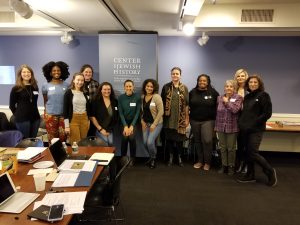
Teachers pose with LBI staff and consultants.
Goals for the day:
- To convene a community of educators to generate educational materials for LBI.
- To provide sufficient information for teachers about the 1938 Projekt that they can create their own lesson plans.
- To model a professional development structure for LBI.
- To enrich teachers’ own teaching practice through meeting and collaborating with other skilled educators.
Objectives: Teachers will…
- gather information about the 1938 Projekt in the context of the Leo Baeck Institute and the history of Germany and Austria in the 1930s.
- experience and navigate the 1938 Projekt site and attendant resources.
- be introduced to lesson plan goals and workshop a draft lesson plan.
- share ideas with colleagues for easing and enriching access and use of the 1938 Projekt for teachers and students.
- brainstorm ideas for lesson plans.
Agenda
9:00 Breakfast available
9:30 Welcome and Introductions, Review of the day’s agenda (Rebecca)
10:00 – 10:20 Overview of Leo Baeck Institute and the 1938 Projekt (Renate)
10:20 – 11:20 Lecture on general history 1933 – 1938, Q and A (Magda)
11:20 – 11:30 Quick Break
11:30 – 11:50 Tour of the Projekt Website: Organization, resources (Magda)
11:50 – 12:40 LUNCH + Tour facilities (Renate – optional for teachers)
12:40 – 1:10 Goals for Lesson Plans – reviewing Two Years Lesson Plan Organization (sent to teachers before the workshop) + how it was created (tour of the website’s resources — Rebecca)
1:10 – 2:15 Workshopping 1938 Projekt Curator lesson plan through doing the lesson
2:15 – 2:30 Feedback for lesson + suggestions of resources for teachers needed
2:30 – 3:00 Chance to review resources compile + Brainstorm ideas for lessons + next steps
-
Second Teacher Professional Development Workshop
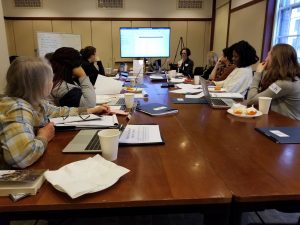
Rebecca leads the group through a demonstration of the template they will use when creating their lesson plans.
During the second workshop, the teachers began drafting their own plans and were given time to create materials individually, in pairs, or groups. Rebecca Krucoff, Natalie Milbrodt, Renate Evers, and Magdalena Wrobel were available to answer questions and brainstorm ideas. Teachers were also invited to share some of the innovative teaching methods they use in their classrooms.
Agenda
9:00 Breakfast available
9:30 Welcome, Review of the day’s agenda (Rebecca)
10:00 – 12:00 Teachers present their lesson plans in small groups, ask questions, get feedback
12:00 – 1:00 LUNCH
1:00 – 1:40 Introduction to lesson plan template and how to use (Rebecca)
1:40 – 3:00 Teachers continue work and discussion on their lesson plans
-
Reflection Meeting
Magda and Renate met again with Natalie and Rebecca to discuss the two workshops and assess the following questions:
- What was easy?
- What was hard?
- Was there a standout moment?
- What was most surprising?
- What would you do differently?
- What are some takeaways for your own practice?
- What kind of collaboration could you imagine with educators in the future?
-
Publication of lesson plans
Lesson plans created by teachers and consultants went live on the 1938Projekt website
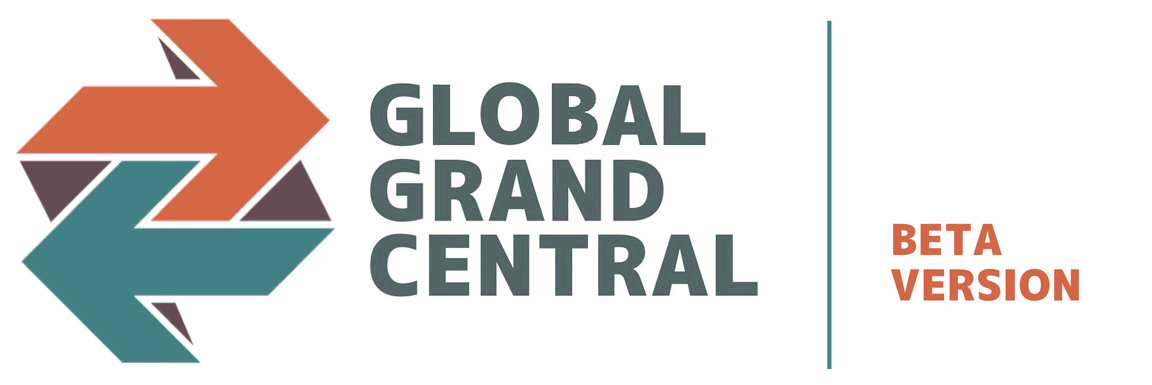
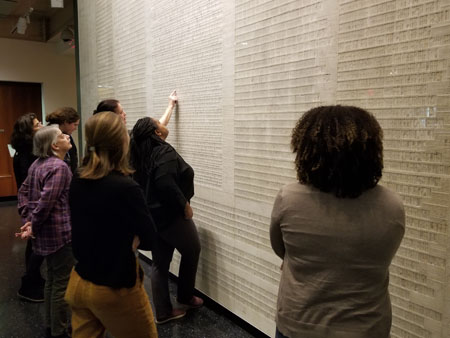
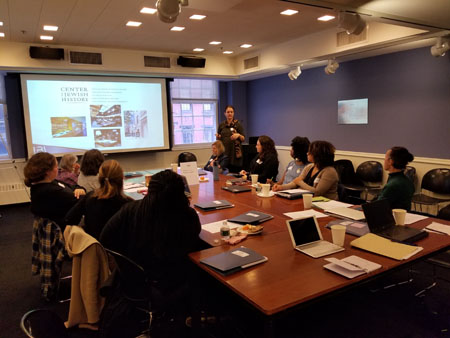
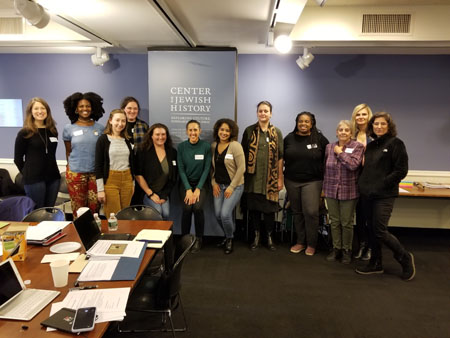
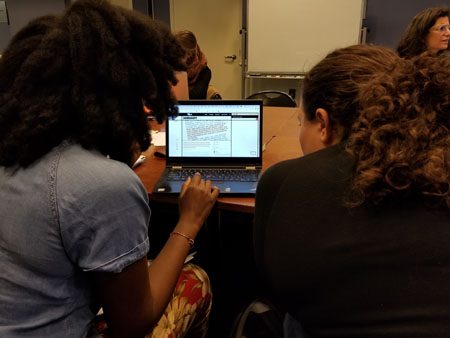
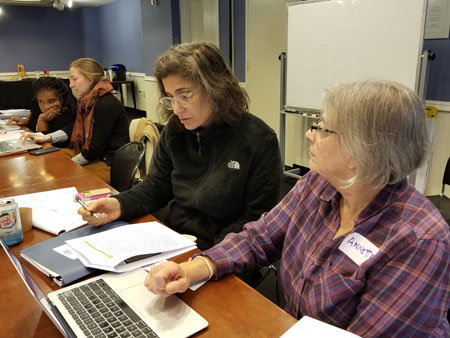
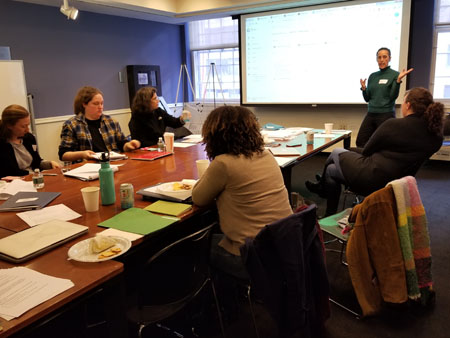
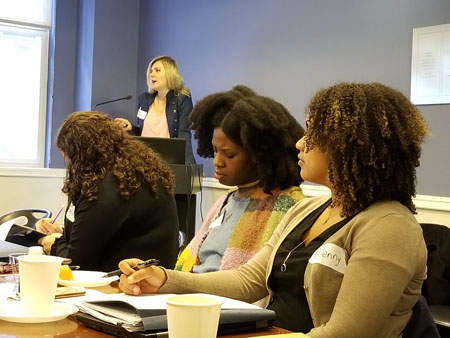
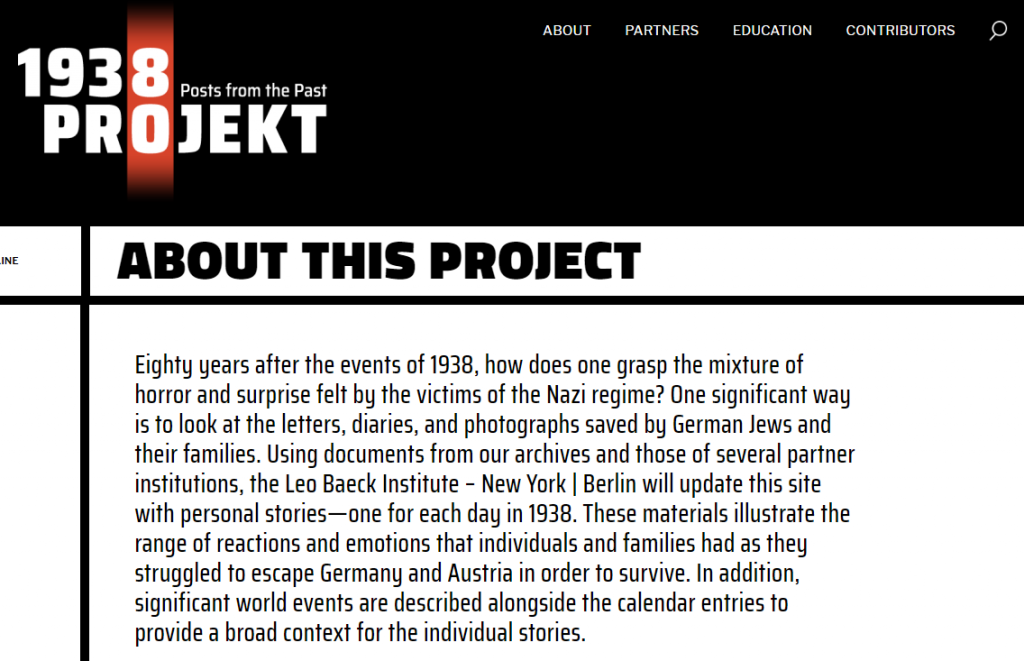
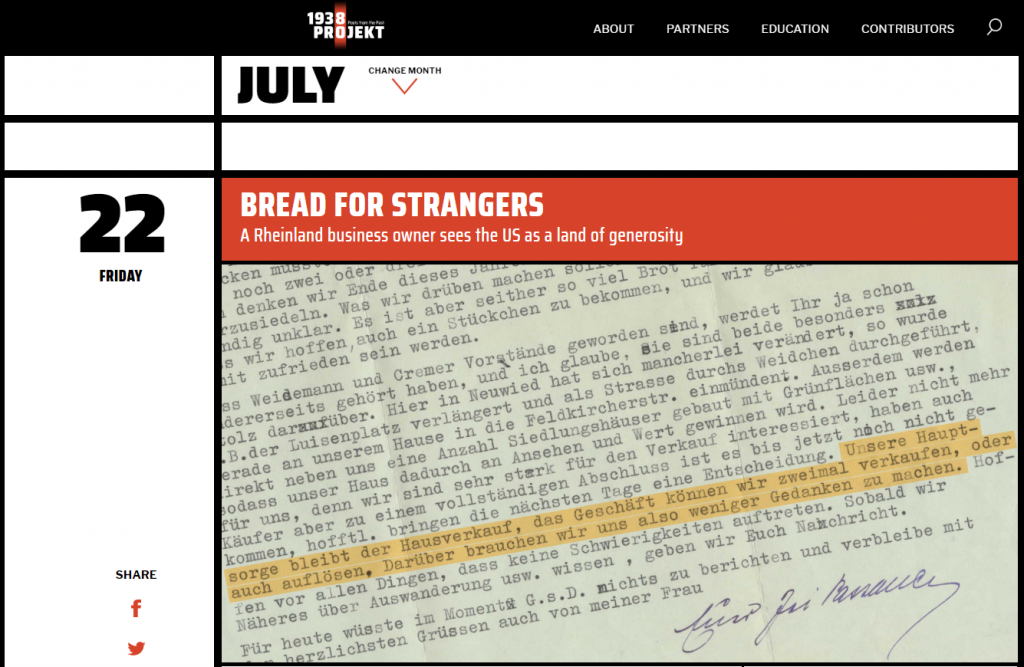
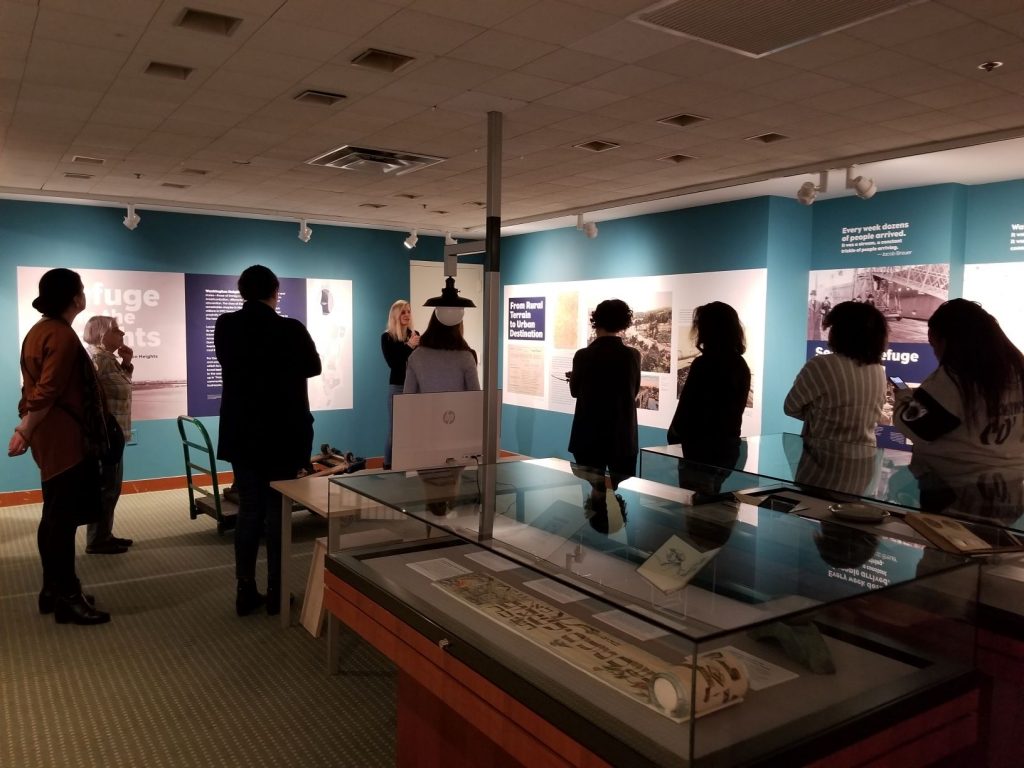
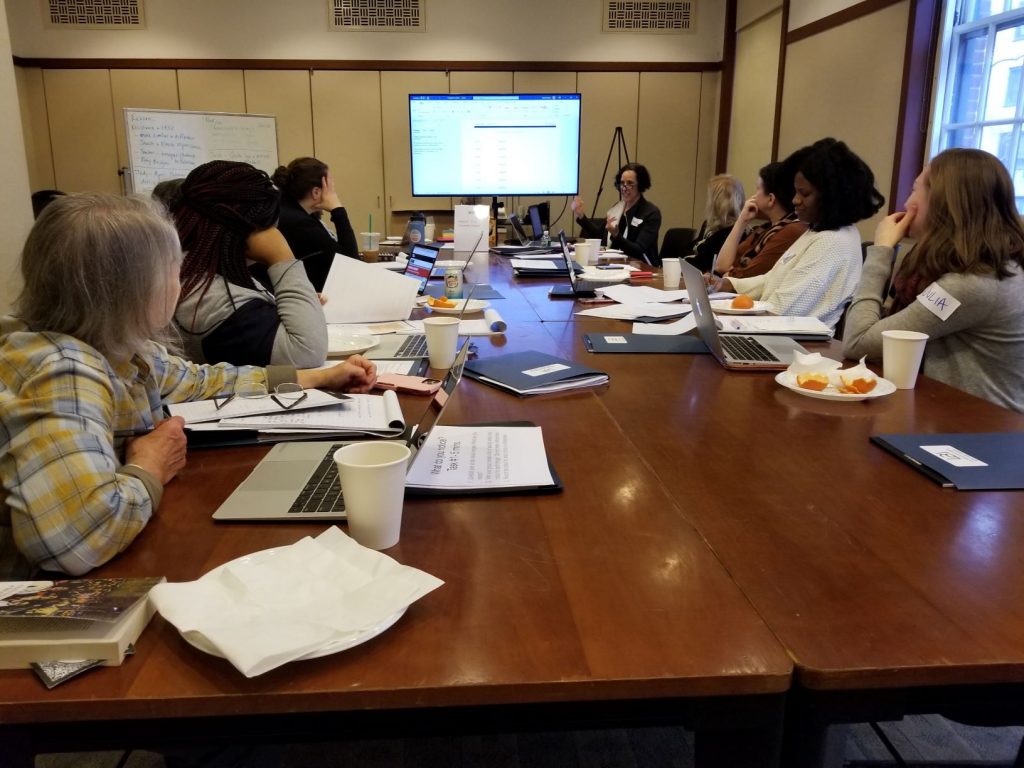
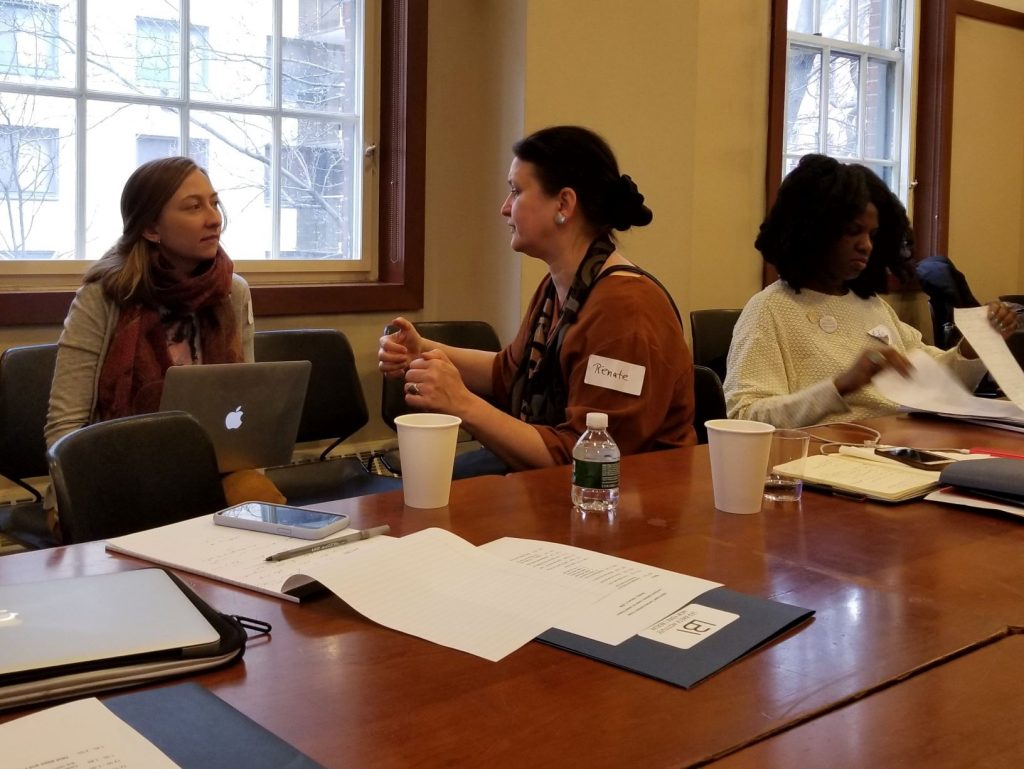
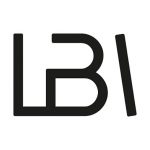 An activity by
An activity by